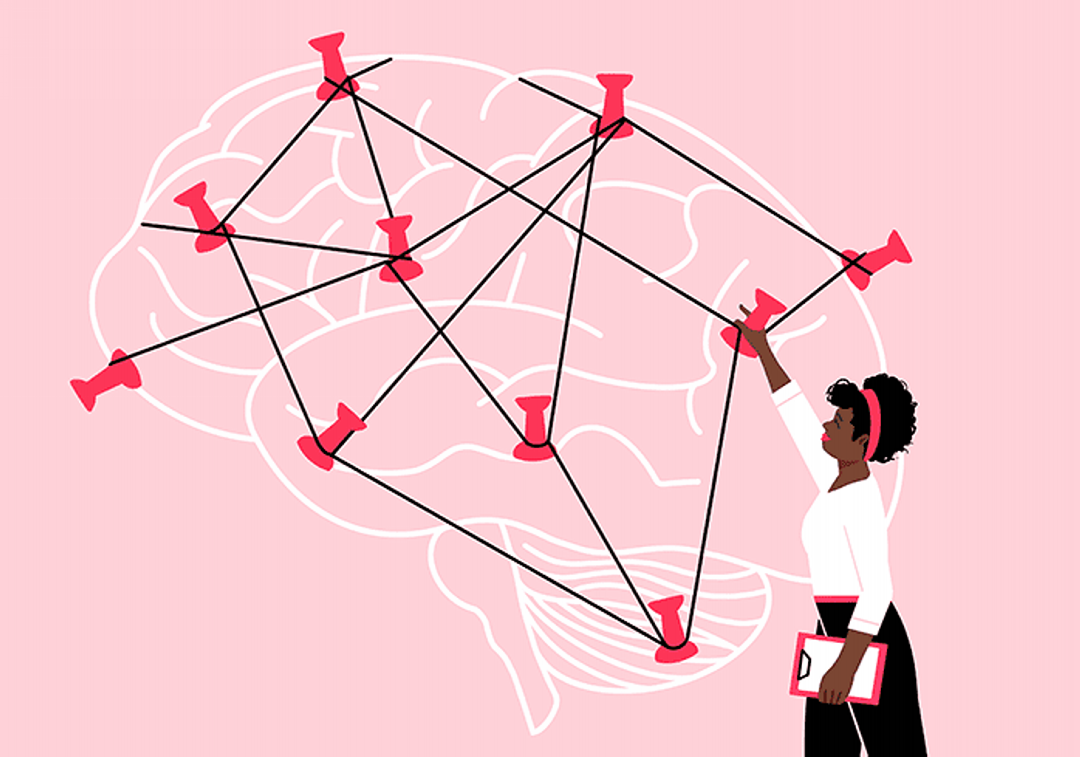I arrived on the psychiatric hospital in June of 2019. I had struggled for years with main depressive dysfunction and generalized anxiousness dysfunction, and so they each worsened after having my two youngsters. Main as much as the hospitalization, I had been abusing my anxiousness remedy (a benzodiazepine) and fighting compulsive behaviors, like procuring, slicing and binge consuming.
That first day, I wore a protracted, blue and white gown with a sash round my waist, which was dressy for me. I used to be hopeful. I figured I’d be there for simply a few weeks, after which I’d be cured. Possibly that’s how hospitalization works for some individuals, but it surely didn’t go that approach for me. And for many individuals residing with severe psychological sickness (SMI), the journey to restoration is just not that straightforward.
Trying again on my historical past, I hope to share the teachings I discovered alongside the way in which.
Inpatient Therapy is a Wake-Up Name
That morning, after kissing my husband goodbye, a member of the hospital employees took the sash from my gown. I used to be not allowed any merchandise that might be used for self-harm. I used to be taken to my room, which seemed like a dorm room, however there was no bathe door, only a curtain (additionally a security precaution). Through the day, a employees member would come by and examine on us each quarter-hour. At evening, too. These excessive measures opened my eyes to how dire my scenario was.
My work to create an efficient and sustainable therapy plan — one that might carry me via my outpatient therapeutic — started instantly. I used to be given a busy schedule of lessons on how to deal with troublesome feelings, find out how to talk about my sicknesses and find out how to be conscious. Once I didn’t have class, I met with a workforce of docs and employees — social employees, therapists, a psychologist and psychiatrist. They instructed me I couldn’t be discharged till we completed and permitted my therapy plan. I additionally did a battery of psychiatric assessments, rising my record of diagnoses: dysthymia, avoidant character dysfunction, together with main depressive dysfunction and generalized anxiousness dysfunction.
After docs decided I had treatment-resistant despair (that means that some drugs wouldn’t work for me) we opted to attempt electroconvulsive remedy (ECT). That additionally was a giant wake-up name: I used to be very sick. That’s after I first understood that I’d be strolling a good rope when it got here to my restoration. I couldn’t be cured, however I may handle my signs and discover my steadiness.
After six weeks in therapy, I felt like I’d made important progress and was prepared to go dwelling to see my household. However trying again, I want I had stayed on the hospital longer, absorbing all of the lessons and recommendation I may.
The Actual Work Begins After Hospitalization
Once I left inpatient therapy, docs really useful that I proceed ECT therapies, go to weekly remedy and discuss with my therapy plan, which outlined methods to manage at dwelling.
At first, I relied closely on ECT to work its “magic.” I’d take my remedy and go to remedy, however any signal of a foul temper left me wanting extra ECT. I used to be going for a therapy each 4 to 6 weeks in a metropolis two hours away. Ultimately, I discovered that even ECT can’t repair every part. My therapist as soon as instructed me that I couldn’t get ECT each time I had a foul day. And she or he was proper. I needed to do the work, and it was arduous. I struggled to sit down with uncomfortable feelings.
I nonetheless turned to my binge consuming and compulsive looking for consolation, racking up 1000’s of {dollars} on my bank card every month. I didn’t imply to, however this was a conduct that had served me prior to now. I wanted to learn to acknowledge my emotions and tolerate misery in a wholesome approach.
That’s one factor I’ve discovered about restoration: It’s all a balancing act. And, as my compulsive behaviors spiraled, I didn’t know if my household may take one other fall. Or if there would even be a web to catch me this time.
Restoration Is a Lifelong Battle, However It Does Get Simpler
I typically really feel resentful of my very own mind; it looks as if a betrayal that I’ve to stroll the road so fastidiously when others don’t. And generally, I’m wondering if I I’ll ever go a day with out serious about my psychological well being. Even 4 years after my hospital keep, my restoration is a continuing effort. I’m nonetheless studying that not all coping mechanisms are wholesome and that slip ups and setbacks are frequent. I’m studying that remedy can fail and even when I comply with all of the “guidelines,” I can nonetheless discover myself in a depressive episode.
Nevertheless, I discover consolation in realizing I’m not alone. In 2020, an estimated 14.2 million adults within the U.S. handled a severe psychological sickness, based on the Nationwide Institute of Psychological Well being (NIMH). And many people who make up this statistic discover the correct of assist and efficiently handle our signs.
Once I get discouraged about my psychological well being, I like to consider the progress I’ve made — I’m miles away from the place I used to be that day in my blue and white gown.
Psychological Sickness is Not My Fault
For a very long time, I blamed myself for my sickness, and I shouldered the heavy burden of different individuals’s opinions about me and my psychological well being. Nevertheless, via therapy and reflection, I’ve come to know that my sickness is just not my fault.
Reaching this realization has allowed me to search out my voice. After I left the hospital, I began running a blog about my expertise. I instructed the reality about every part (suicidal ideas, diagnoses, and many others.). I instructed readers my deepest darkest secrets and techniques, and it was so liberating. I not really feel disgrace or any stigma related to having a psychological sickness. So many individuals have reached out to me since 2019, saying they really feel the identical approach however can’t discuss it with family members but. I get that, and I’m glad to lend my voice to others’ struggles if it means they don’t really feel so alone, like I did years in the past.
Even with all this progress, it’s nonetheless arduous — and that’s okay. Day by day I get a little bit stronger, and I develop. That’s all I can ask of myself.
Heather Loeb is the creator of Unruly Neurons, a weblog devoted to eradicating the stigma of psychological sickness. Heather has lived with main depressive dysfunction, generalized anxiousness dysfunction, avoidant character dysfunction and binge consuming dysfunction for the previous 20 years. She additionally writes a psychological well being column within the Corpus Christi Caller-Instances and is the Communications Supervisor for NAMI Better Corpus Christi.



